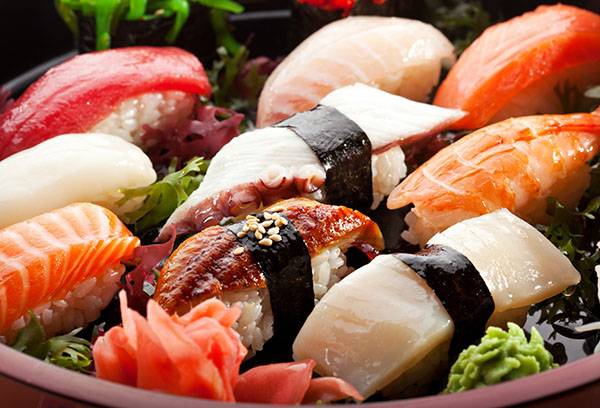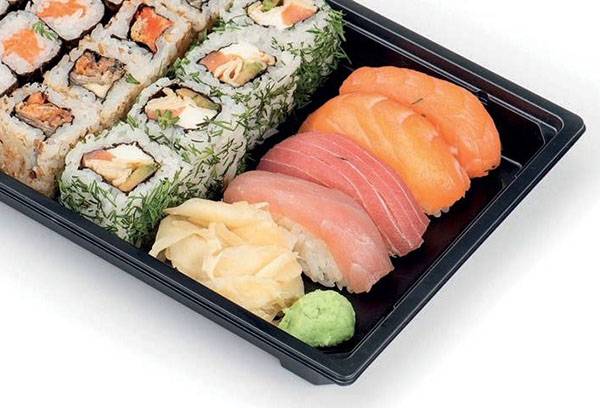How long can sushi and rolls be kept in the refrigerator?
Modern hostesses, as well as those who like to order a “tasty box” with Japanese delicacies at home, are probably worried about the question: how much sushi can be stored? Does the shelf life depend on the composition of the filling? This, as well as how to visually assess the freshness of a rice dish, will be described in detail below.
Sushi shelf life
Traditionally in Japan, where this dish comes from, exclusively fresh fish or shrimps are used for its production, so Japanese chefs say that this product has no expiration date: it is prepared in restaurants in front of customers, and they immediately use it for food.
In our country, for cooking, they use not only raw fish, but also smoked or slightly salted, so the process and storage time of the finished product may vary. In addition, the expiration date also depends on where the product was purchased: in a store, Japanese restaurant or prepared independently.
How much sushi is stored? Answer: if they are made from raw seafood, then they need to be eaten no later than three hours after cooking. If the fish that is part of the dish has undergone a certain processing (for example, freezing, smoking or salting), then they can be stored in the refrigerator for no more than one day. In any case, it is best not to store fish delicacies, but to immediately eat them.
Shelf life of rolls
Rolls - this is a twisted "roll", which consists of special seaweed, rice, fish (shrimp) and sauce.
How long can I store rolls? It all depends on the freshness of the components that make up them, as well as whether the fish inside is fresh or pre-processed. If the rolls are made of fresh fish (most often such a dish can be found just in Japanese restaurants), they should be eaten no later than three hours after cooking. If they are prepared from slightly salted or smoked fish, then their shelf life in the refrigerator is extended to 24 hours.
Tip
The product can be stored in the refrigerator for no more than a day, but it is best to eat it immediately after purchase or after cooking. Therefore, if you decide to make a Japanese delicacy at home, you do not need to cook it “in reserve”, and if you buy in a restaurant, eat right away.
In addition to the basic rules, it should be noted that if you prepare sushi at home and are confident in the quality of the products, they can be stored in the refrigerator for up to two days. Therefore, carefully select the products, and then the dishes will be stored longer.
Refrigeration Tips
In order for the dish to keep fresh, you need to know how to store sushi in the refrigerator. The basic rules are pretty simple.
- If you cook a dish at home, choose only fresh products for it, and buy slightly salted or smoked fish, but it is advisable to refuse frozen fish, because it is not known how long it lay in the refrigerator before the buyer found it.
- Most rolls are prepared and served cold, but there is a kind that is served hot, they cannot be stored, and they must be eaten immediately after cooking, otherwise they will lose their taste.
- If you order Asian food at home, it is brought in plastic boxes. In such boxes, you can’t store the delicacy, because rice can be weathered, and the dish will lose its taste.
- If you have several rolls left after eating, you need to carefully lay them on a plate and wrap them with cling film: it will prevent the weathering of rice and extend the shelf life of the dish.
- In the case when you order goods at home, check the tray in front of the courier and determine whether you brought a fresh product. If the rolls are fresh, the rice will be white and the filling is not dried up (visually distinguishing fresh rolls from stale is very simple, just look at their appearance).
- If you bought packed sushi in a supermarket and do not want to eat it right away, look at the expiration date of the products and open the tray immediately before eating.
- The product must be kept exclusively in a cold place.
These tips will help preserve the taste of Japanese delicacies throughout their shelf life.
Tip
Do not store this dish for a long time (no more than a day), because it contains seafood and, if it spoils, can lead to serious poisoning of the body.


